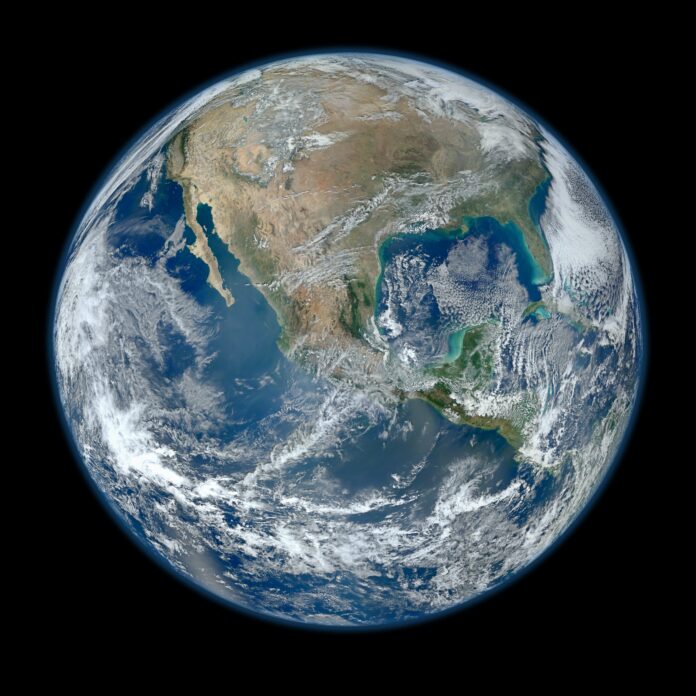
By
Do you remember a time when Black folk weren’t affected by climate change? Probably not, considering that the climate crisis has been hurting us for decades. We receive little to no support when it comes to receiving aid during a climate-related disaster.
But Black folk can get in the fight for climate justice because climate change is affecting all of us.
At times, politicians and camera crews show up for a few weeks to document a disaster, then leave for good. It hurts to know that our communities are being blatantly ignored. Look into hurricane disaster relief, and you will find that Black people are often left behind. You may see images of Black people clinging to their roofs while others try to swim to a safer location.
You might see articles about how air pollution is causing higher rates of asthma in Black areas, and at times, exposure to dirty air can cause more serious health conditions like lung cancer.
No matter where you are in the United States, you see the effects of climate injustice on Black people. For example, Black unhoused folk — who are 34% of Los Angeles’ homeless population despite being only 8% of the city’s overall population — have been left to fend for themselves with the rain that deluged the city over the past few months. And those tornadoes that hit the South hard have displaced people from several Black communities.
But don’t fret — there is a lot you can do to advocate for climate justice. From Hip-Hop Caucus to the National Association of the Advancement of Colored People, there are plenty of organizations you can work with or join to continue the fight for climate justice.
To ensure healthy future generations of Black folks, the experts we spoke to say there are three major reasons Black folk should drive the push for a clean environment on Earth Day and beyond:
1. Black Folk Are Getting Sick
Black people are 75% more likely to live near oil and gas refineries. Exposure to dirty air can result in serious health conditions and death. From lung cancer to asthma, there are so many ways pollution can impact the health and wellness of Black folk.
“I think that air pollution has a critical piece in terms of what’s killing us,” says Cynthia Swann of Hip Hop Caucus.
But air pollution isn’t the only thing Black folk should be worried about.
Another result of climate change is extreme temperatures are a direct result of climate change. Around 65,000 Americans go to the emergency room for heat-related health problems, and over 700 people die from exposure to extreme heat every year. From 2004-2018, Black folk had more deaths due to extreme heat than most racial groups, with 1,965 deaths.
2. Climate-Related Disasters Are Hitting Black Neighborhoods Hard
As we’ve seen, climate-related disasters like over two feet of rain falling in Ft. Lauderdale in less than 24 hours and more intense tornadoes deeply impact Black communities.
“Black communities bear the brunt of environmental hazards. Earth Day is about ensuring that we bring awareness to environmental concerns,” says Abre’ Conner, the director of Environmental and Climate Justice at the National Association for the Advancement of Colored People.
The former civil rights attorney says we cannot address the climate crisis without amplifying Black communities, especially Black folk who have been historically excluded from environmental decision-making.
“Black people have been at the forefront of sounding alarms about the need for Black voices to be amplified. We even coined terms like environmental racism because of our exclusion. It is an opportunity to reclaim a space that is rightfully ours.”
3. We Need to Look Out for Future Generations
“I think Black people should care about Earth Day because it’s a day to bring attention to some of the challenges we face living on this planet,” says climate influencer Doria Brown.
She feels strongly about Black people getting involved in the movement for environmental justice because climate change has been so detrimental to Black communities.
We even coined terms like environmental racism because of our exclusion. It is an opportunity to reclaim a space that is rightfully ours.
ABRE’ CONNER, NATIONAL ASSOCIATION FOR THE ADVANCEMENT OF COLORED PEOPLE
And young people care about their futures, too. In 2019, a Washington Post-Kaiser Family Foundation poll revealed that twice as many Black and Latino teenagers took part in school walkouts about climate change compared to white teens.
“We should be fighting for climate justice because there will be future generations of Black people,” Brown says.



